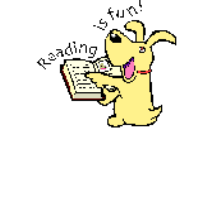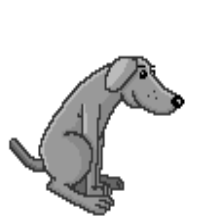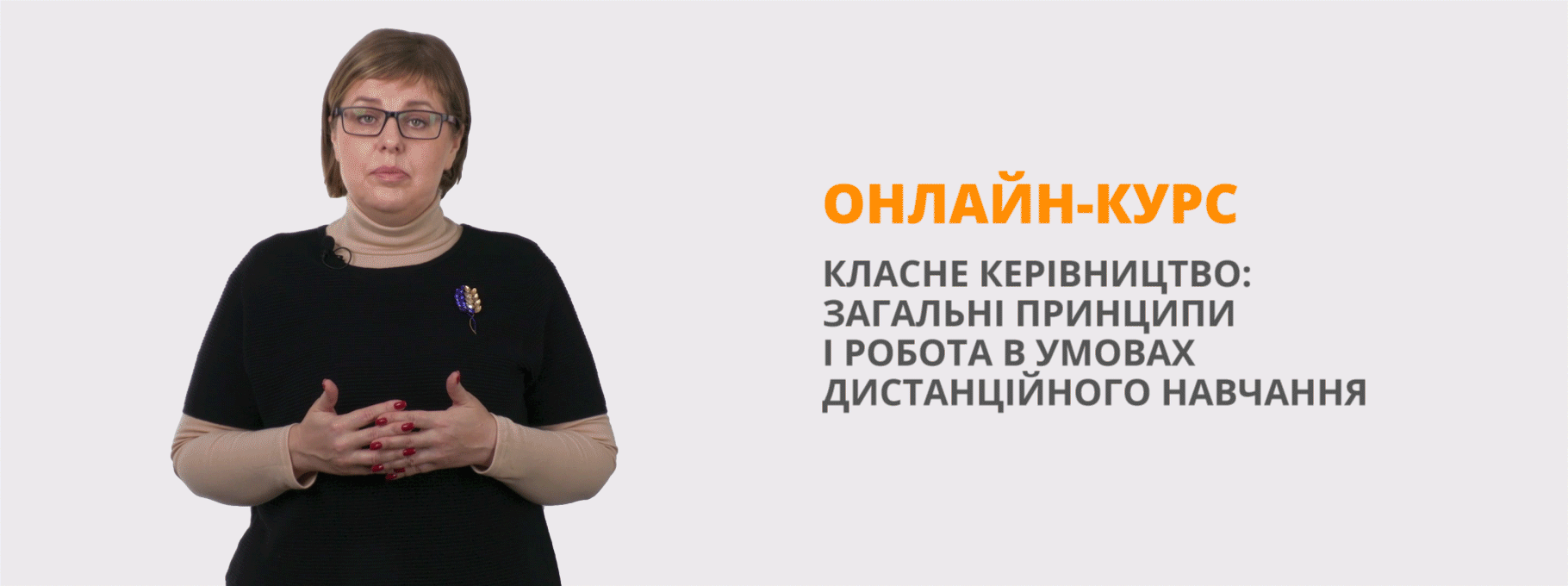Reading Comprehension.
Reading is a complex process that develops over time. Although the basics of reading — word recognition and fluency—can be learned in a few years, reading to learn subject matter does not occur automatically once students have “learned to read".
Contents
Introduction……………………………………………………………………….3
Poor little pet………………………………………………………………………5
The Valentine card………………………………………………………………10
Parable of the pencil……………………………………………………………..14
The praying hands……………………………………………………………….17
Trees that wood…………………………………………………………………..23
The girl on the motorbike……………………………………………………….29
No place like home……………………………………………………………….32
A good morning………………………………………………………………….34
Reality television………………………………………………………………....38
Best message……………………………………………………………………...42
I have nothing left………………………………………………………………..45
Doctor Knowall…………………………………………………………………..47
Old Sultan………………………………………………………………………...53



Reading is a complex process that develops over time. Although the basics of reading — word recognition and fluency—can be learned in a few years, reading to learn subject matter does not occur automatically once students have “learned to read”. To comprehend something means to understand it. Reading comprehension means understanding something that you read and not just read through. Whenever you read something, there may be instances when you just browse through a paragraph which you are reading. On the contrary, at times, you may try to understand what the content is. The latter is the actual way of reading comprehension. You must be able to recollect, assimilate and reproduce whatever you have read.
People who like to read actually comprehend whatever is written. Since reading comprehension is individualistic, so is the interpretation. This often reflects in the fact that different people interpret the same piece of prose or verse in various ways. The ability to interact with the text is directly proportional to the ease of reading or fluency. A person will be able to understand the intentions expressed in whatever he is reading only when he is able to decipher the words without difficulty. If the person spends more time to understand the words, then he will find it increasingly difficult to combine them and form meaningful interpretations. As such, this skill should be imparted early in kids, using story books and illustrated works. When the child starts understanding things easily, he develops a sense of literary comprehension which sticks to him forever.
The texts given in this book are authentic. Thus, they motivate students to perform when they’re faced with tasks that reflect real world situations and contexts. The texts are informative, as they cover a great variety of topics which are interesting for teenagers and adults. They are taken from books on fiction, newspapers and magazines. The texts and tasks include idioms and proverbs, phrasal verbs which help improve students’ skills. The texts will help teachers provide the communicative approach of learning English at their lessons.
The material collected in this book focuses on the students’ reading skills with the further development of speaking and writing habits. The level of implementation covers the intermediate learners. Critical thinking activities and discussion involvement will surely make presentation more effective .The context of the texts , feedback tasks ,gap information activities of the sections fully coincide with the idea of communicative approach in teaching English.
The authors are truthfully hoping that the following materials will be useful for the teachers of English and all those learning and mastering the English language.
 Poor Little Pet
Poor Little Pet
Pre –Reading Activities
1. Share your ideas.
Why do we have pets? Which pet is right for you?
2. Study the new vocabulary and make up your own sentences with them.
Bridge- a card game for four players who play in pairs
Gobble-to eat something very fast, in an impolite or greedy way
Malicious- very unkind and cruel
Clatter-to move quickly and noisily
Occurrence -something that happens
Swallow -to make food or drink go down your throat and to your stomach
Match a word to the correct definition.
|
1. |
to plan to do smth |
a) |
to provide |
|
|
2. |
to supply |
b) |
to upset |
|
|
3. |
to make (some news known) |
c) |
to flash |
|
|
4. |
to suggest |
d) |
to intend |
|
|
5. |
to swallow food quickly |
e) |
to occurrence occurrence |
|
|
6. |
to make others unhappy |
f) |
to swear |
|
|
7. |
to move quickly |
g) |
to rush |
|
|
8. |
to make a solemn promise |
h) |
to offer |
|
|
9. |
to cause to go quickly |
i) |
to announce |
|
|
10. something that happens j) |
j) |
to gobble |
||
Poor Little Pet
 This happened in England shortly after World War II. Mrs. Reed intended to give a party. She wanted to invite her friends for dinner and a game of bridge. It was easy enough to ask people to come, but far more difficult to provide a meal for them.
This happened in England shortly after World War II. Mrs. Reed intended to give a party. She wanted to invite her friends for dinner and a game of bridge. It was easy enough to ask people to come, but far more difficult to provide a meal for them.
She was thinking about it when her maid-servant announced that there was a man at the back door offering to sell mushrooms.
The lady, accompanied by the little terrier, came down to the kitchen and found there a rather disreputable-looking stranger with a basket over his arm. The lady knew nothing about mushrooms and she asked the man if they were not poisonous. The man reassured her that they were good. The lady paid the money at once, ordering her servant to empty the basket and return it to its owner. While the servant was emptying the basket she dropped a mushroom, and the terrier immediately gobbled it.
Seeing that, the stranger said that the dog knew what was good. Pocketing the money, he laughed a malicious laugh and left the kitchen.
The guests arrived at the appointed hour and were served a dish of mush rooms, which they liked very much. While the usual clattering of forks and knives was in progress, the hostess noticed that the servant’s eyes were red with tears. Calling her aside, Mrs. Reed asked her what was the cause of her tears. The girl said that she did not want to upset the lady, but she was crying because the dog had died.
The terrible truth flashed through the lady’s brain. She saw her duty clearly and addressing the guests she said that the mushrooms she had offered them were poisonous. She added that if they wished to save their lives they should act quickly.
There was a general outburst of emotions. Some of the gentlemen swore, some of the ladies cried. Then one man suggested going to the nearest hospital to have the contents of their stomachs pumped out. All rushed for their dear lives. The staff of the hospital were surprised to see a group of patients in evening dress. Naturally no one thought of playing cards after that occurrence.
On arriving home, the lady asked where the terrier’s body was.
‘Oh,’ said the servant, still sobbing, ‘the gardener has buried it in the garden, for it was so badly smashed, and we didn’t even have enough time to put down the number of the car that so cruelly ran over the poor little pet.’
After Reading Activities
1. Mark the correct variant.
1. What kind of celebration was Mrs. Reed going to have?
a) a lunch b) a wedding party
c) a house-warming party d) a dinner and a game of bridge
2. What was the man at the back door selling?
a) apples b) berries
c) mushrooms d) potatoes
3. Who accompanied the lady to the kitchen?
a) little dog b) a little cat
c) a maid-servant d) her husband
4. What did she ask the man about?
a) If the mushrooms were fresh.
b) If the mushrooms were not poisonous.
c) If the mushrooms were tasty.
d) How much they cost.
5. What happened when the servant was emptying the basket?
a) The servant dropped a mushroom.
d) The servant dropped two mushrooms.
c) The servant dropped the basket on the floor.
b) The servant overturned the basket.
6. What did the terrier do?
a) He sniffed at the mushroom.
d) He played with the mushroom.
c) He swallowed the mushroom.
b) He touched the mushroom with his paw.
7. Why were the servant’s eyes red?
a) Because the dog died.
d) Because the dog had eaten the meat.
c) Because she had been peeling onions.
b) Because her husband had died.
8. What did the guests do when they got to know that the mushrooms were poisonous?
a) They drank some medicine.
d) They didn’t know what to do.
c) They called for an ambulance.
b) They rushed to the hospital.
9. Why did the dog die?
a) He had been poisoned with a mushroom.
d) He had been run over by a car.
c) He had been run over by a bicycle.
b) He had been poisoned by a neighbour.
10. Where was the dog buried?
a) in the cemetery b) n the garden
c) n the field d) n the forest
2. Here are some answers. What are the questions?
- This happened in England shortly after World War II.
- Mrs. Reed invited her friends for dinner and a game of bridge.
- The man at the back door sold the mushrooms.
- The lady was accompanied by the little terrier.
- The lady knew nothing about mushrooms.
- The man reassured her that the mushrooms were good and not poisonous.
- The lady ordered her servant to empty the basket and return it to its owner.
- The terrier immediately swallowed a mushroom.
- The girl said that she was crying because the dog had died.
- They all rushed to the hospital.
- The stuff of the hospital were surprised to see a group of patients in evening dress.
- The servant answered that she hadn’t even had enough time to put down the number of the car that so cruelly had run over the poor little pet.
3. Read the summary of the text. There are some mistakes in it. Find out and correct them.
This happened in England before World War II. Mr. Reed intended to give a party. She wanted to invite her friends for a lunch. It was easy for her to provide a meal for them but she wanted something delicious. Suddenly her man-servant announced that there was an old lady at the back door and she was offering to sell berries and mushrooms. The lady liked mushrooms very much and knew everything about them. She asked the old lady to empty the basket, but all of a sudden she dropped some mushrooms and the lady’s cat immediately gobbled them. The guests didn’t like mushrooms but they were served a dish of fried mushrooms. Mrs. Reed noticed that the eyes of her man-servant were red. She asked what was the cause of his tears. The man-servant answered that the lady’s cat had died.
The terrible truth flashed through the lady’s brain. She quickly sent the guests to their homes.
4. Write a short story on the topic:
‘The worst birthday I have ever had.’
THE VALENTINE CARD

Pre-reading Activitiy
Tell everything you know about St Valentine Day, a traditional English holiday, and answer the questions.
1. What do you think about the tradition of sending Valentine’s cards?
2. Is it good or bad that traditionally people do not write their names on Valentine’s cards? Why?
3. In Ukraine we have not such a tradition but we have shy girls and boys too. Is there anything that can play the role of Valentine’s cards in our country and can help shy people?
While Reading Activity
Give Ukrainian equivalents for the following words and expressions from the text and use them in the sentences of your own: to make noise, to bring somebody out of isolation, to be useless, to be popular with somebody, to arrive by post, to be written in blue ink, to smile at somebody, to let somebody know, to smile back, to bump into somebody, it s nice of somebody to do something,
The Valentine Card
Helen only smiled and said nothing when her parents asked why she did not go out. Her mother often suggested that Helen invite some of her friends home one evening.
“I can make some cakes and you can all dance and have a party. Your father and I can go out for the evening so you won’t have to worry about the noise you make,” she said.
Her father also tried to bring her out of her isolation and told her that when he was sixteen, he “knew a pretty face when he saw one.”
It was all useless. Helen stayed at home in the evening and read books or played records or watched television. Parents were nice. They tried to help. But they did
not understand. To be popular with boys you had to be gay and pretty.
Helen looked in her bedroom mirror. She saw a small, round face that usually became red whenever a boy even said “Hello!” to her. “No boy could ever like me," she said to herself.
On St Valentine’s Day, at breakfast a card arrived by post. Helen looked at the envelope with her name and address written in blue ink. Her mother went into the kitchen and her father quietly read his morning paper and ate his toast.
Helen opened the envelope and took out a card. There were the words on it in bright blue ink, ”To Helen - hope we meet soon." Who was it from? Perhaps it was a joke?
“It’s a very nice card,” said her mother. “Who is it from?” she asked. “I’ve no idea,” said Helen. “There's no name on Valentine cards.”
“Who was it from? “Helen asked herself as she walked to school. She tried to think of the people she knew who used bright blue ink.
There was Paul, of course. He lived in the street next to hers. He always used that colour ink. But how could the  card be from Paul? He was always going out and had a lot of friends. He was the best tennis player and swimmer at school and had many girl-friends.
card be from Paul? He was always going out and had a lot of friends. He was the best tennis player and swimmer at school and had many girl-friends.
Before going into her classroom Helen saw Paul coming towards her.
Was he smiling at her or only laughing at her? If he was the person who had sent the card, he must know that she had received it that morning. Probably he was going to tell the whole of the class about the joke.
“Hello, Helen, “he said. ’’How are you?”
“I’m OK” said Helen.
“If he sent me the card”, thought Helen “I’m not going to let him know I’ve got it!'
“You’re always doing your homework. You never seem to have time to come out in the evening,” said Paul. “Why not come out tonight? It’s February 14. You know what day that is, don’t you?”
“Of course,” replied Helen. “St. Valentine’s Day." She smiled carefully at Paul. He smiled back at her.
“We can go and see a film in town and then have some coffee. You will come, won’t you?”
I’m sorry I can’t come. I’ve got to... to go out with mummy and she...”
“Please come. I’ll call at your house at seven o’clock.”
Helen arrived home at half past four and started to run up the stairs. “Hello, dear,” called her mother from the kitchen. “Are you in a hurry?”
Helen ran back down the stairs and into the kitchen.
“Where’s my green dress, mum? Do you know? I’ve got to go out tonight and I must get ready before dinner.”
She ran out of the kitchen and bumped into her father who was coming into the hall.
“What’s the hurry? Is there a fire or are you going out somewhere?”
“I’m going out tonight - I’m going to see a film - with Paul from school.”
“But it’s only half past four. You don’t have to get ready so early, do you?”
“Yes, yes, I must get ready now,” said Helen.
“Oh, that's nice,” said father. “Lucky Paul!”
“Isn’t it nice of Paul to ask pictures with him,” Helen’s mother. “She’ll enjoy
Helen’s father smiled at her.
“Yes,” he said. “Must be the Valentine card that did it.”
Then he went into the living room and quietly put a bottle of bright blue ink inside his desk drawer
After Reading Activity
1.Discuss the following
1. Do you agree with Helen that “to be popular with boys you had to be gay and pretty”?
2. Why Helen was in a hurry?
3. Who wrote the Valentine card?
4. What was the role of the Valentine card in the story?
4. Are you sure it is necessary to help such people? Why do you think so?
5. Do you know girls like Helen? Have they a chance to have a boy friend without a Valentine’s card? Why?
6. Do you like the story? Why?
2 Retell the text on the part of 1) Helen 2) Helen’s father
3 Make a Valentine Card for your classmate and write a message to your friend.

Pre-reading activities.
1. Learn the following words and word-combinations:
Parable – притча, алегорія;
Purpose – мета, ціль;
Access – надати доступ;
Possess – володіти, мати;
Painful – болісний;
Surface – поверхня;
To get discouraged – занепадати духом, засмучуватися;
Accomplish – завершувати, удосконалювати.
2. Brainstorming.
What parables have you ever read or heard?
What are their morals?
What other words do you associate with the word “parable”?
Read one more parable and figure out its moral.
 The Pencil Maker took the pencil aside, just before putting him into the
The Pencil Maker took the pencil aside, just before putting him into the
box.
"There are 5 things you need to know," he told the pencil, "Before I send
you out into the world. Always remember them and never forget, and you
will become the best pencil you can be."
"One: You will be able to do many great things, but only if you allow
yourself to be held in Someone's hand."
"Two: You will experience a painful sharpening from time to time, but you'll
need it to become a better pencil."
"Three: You will be able to correct any mistakes you might make."
"Four: The most important part of you will always be what's inside."
"And Five: On every surface you are used on, you must leave your mark.
No matter what the condition, you must continue to write."
The pencil understood and promised to remember, and went into the box
with purpose in its heart.
Now replacing the place of the pencil with you. Always remember them
and never forget, and you will become the best person you can be.
One: You will be able to do many great things, but only if you allow yourself
to be held in God's hand. And allow other human beings to access you for
the many gifts you possess.
Two: You will experience a painful sharpening from time to time, by going
through various problems in life, but you'll need it to become a stronger
person.
Three: You will be able to correct any mistakes you might make.
Four: The most important part of you will always be what's on the inside.
And Five: On every surface you walk through, you must leave your mark.
No matter what the situation, you must continue to do your duties.
Allow this parable on the pencil to encourage you to know that you are a
special person and only you can fulfill the purpose to which you were born
to accomplish.
Never allow yourself to get discouraged and think that your life is
insignificant and cannot make a change.
While - reading activities.
1. Find the words in the text to match the following definitions.
1. wrong idea, opinion, act, an error;
2. line, scratch, cut, stain, etc. that spoils the appearance of something;
3. natural ability or talent;
4. that which one means to reach, get, be, etc. plan, design, intention;
5. simple story designed to teach a moral lesson;
6. inner side, parts within;
7. different, of a number of different sorts;
8. perform or complete a task, duty, do what is required;
9. unique, of a particular or certain sort, not common, usual, general;
10. having little or no value, use, meaning or importance.
2. Match the words (1-10) to the words (A-J) to make word combinations.
A. problems
B. marks
C. sharpening
D. beings
E. discouraged
F. in the heart
G. person
H. the purpose
I. mistakes
J. maker
After-reading activities.
Work with your partners and accomplish four tasks.
Add more adjectives for the nouns in the text to make it more colourful.
Make up a list of the verbs used in the text to describe the moral of the parable.
Illustrate your work with pictures and drawings.
Develop an action plan to accept the moral of the parable.
Gallery Walk. Present the results of your work. Reflecting on the learning
experience.

Pre-reading activities.
1. Learn the following words and word-combinations:
Appreciation – вдячність;
Goldsmith – ювелір;
Toss a coin – підкидати монету;
Mob – юрба, голота;
Etching – гравюра;
Woodcuts – різьба по дереву;
Oil – картина намальована олійними фарбами;
Pursue – обирати своєю професією, ставити за мету;
Parchment – пергамент;
To pay homage to – засвідчувати повагу, віддавати належне;
Painstakingly – ретельно, старанно;
Abused hands – пошкоджені руки.
2. Family life has always been a subject of research in literature. Famous writers
have always described how people build their family relationships. Family life has
changed a lot over the centuries, but family values have never been the subject
of change. I think you agree with me that the main characteristic features of any
family are love, respect, mutual understanding and tolerance. Today we are going
to speak about the main feature, love. Getting ready for today’s lesson I made a
little research, I tried to find the best quotation about love and found out that there
are 14,958 quotes about love in the Internet and only 47 ones about unconditional
love. You will ask: What is the difference? It is what we are going to figure out
at our today’s lesson. So, let’s start. I will give you two quotes and you will try to
guess which of them is about love and which is about unconditional love.
1. Love asks me no questions,
And gives me endless support...
~ by William Shakespeare ~
2. “When you look into your mother’s eyes, you know that is the purest love you can find on this earth.”
― Mitch Albom, For One More Day
The class is split into two small subgroups. Allow 3-5 minutes to see the difference
between the messages of the quotes and accomplish the given task and then ask for
volunteers to report the results of their subgroups’ discussion to the class.
Below is a touching story about DURERS Praying Hands that is circulated widely.
It tells of DURER doing his creation in appreciation of a brother who went to work
in the mines to support Albrecht's education.
 Back in the fifteenth century, in a tiny village near Nuremberg, lived a family with eighteen children. Eighteen! In order merely to keep food on the table for this mob, the father and head of the household, a goldsmith by profession, worked almost eighteen hours a day at his trade and any other paying chore he could find in the neighbourhood. Despite their seemingly hopeless condition, two of Albrecht Durer the Elder's children had a dream. They both wanted to pursue their talent for art, but they knew full well that their father would never be financially able to send
Back in the fifteenth century, in a tiny village near Nuremberg, lived a family with eighteen children. Eighteen! In order merely to keep food on the table for this mob, the father and head of the household, a goldsmith by profession, worked almost eighteen hours a day at his trade and any other paying chore he could find in the neighbourhood. Despite their seemingly hopeless condition, two of Albrecht Durer the Elder's children had a dream. They both wanted to pursue their talent for art, but they knew full well that their father would never be financially able to send
either of them to Nuremberg to study at the Academy.
After many long discussions at night in their crowded bed, the two boys
finally worked out a pact. They would toss a coin. The loser would go down into
the nearby mines and, with his earnings, support his brother while he attended the
academy. Then, when that brother who won the toss completed his studies, in four
years, he would support the other brother at the academy, either with sales of his
artwork or, if necessary, also by labouring in the mines.
They tossed a coin on a Sunday morning after church. Albrecht Durer won
the toss and went off to Nuremberg. Albert went down into the dangerous mines
and, for the next four years, financed his brother, whose work at the academy was
almost an immediate sensation. Albrecht's etchings, his woodcuts, and his oils
were far better than those of most of his professors, and by the time he graduated,
he was beginning to earn considerable fees for his commissioned works.
When the young artist returned to his village, the Durer family held a festive
dinner on their lawn to celebrate Albrecht's triumphant homecoming. After a long
and memorable meal, punctuated with music and laughter, Albrecht rose from his
honoured position at the head of the table to drink a toast to his beloved brother for
the years of sacrifice that had enabled Albrecht to fulfill his ambition. His closing
words were, "And now, Albert, blessed brother of mine, now it is your turn. Now
you can go to Nuremberg to pursue your dream, and I will take care of you."
All heads turned in eager expectation to the far end of the table where Albert
sat, tears streaming down his pale face, shaking his lowered head from side to side
while he sobbed and repeated, over and over, "No ...no ...no ...no."
Finally, Albert rose and wiped the tears from his cheeks. He glanced down
the long table at the faces he loved, and then, holding his hands close to his right
cheek, he said softly, "No, brother. I cannot go to Nuremberg. It is too late for me.
Look ... look what four years in the mines have done to my hands! The bones in
every finger have been smashed at least once, and lately I have been suffering from
arthritis so badly in my right hand that I cannot even hold a glass to return your
toast, much less make delicate lines on parchment or canvas with a pen or a brush.
No, brother ...
for me it is too late."
More than 450 years have passed. By now, Albrecht Durer's hundreds
of masterful portraits, pen and silver-point sketches, watercolours, charcoals,
woodcuts, and copper engravings hang in every great museum in the world, but the
odds are great that you, like most people, are familiar with only one of Albrecht
Durer's works. More than merely being familiar with it, you very well may have a
reproduction hanging in your home or office.
One day, to pay homage to Albert for all that he had sacrificed, Albrecht
Durer painstakingly drew his brother's abused hands with palms together and thin
fingers stretched skyward. He called his powerful drawing simply "Hands," but the
entire world almost immediately opened their hearts to his great masterpiece and
renamed his tribute of love "The Praying Hands."
The next time you see a copy of that touching creation, take a second look.
Let it be your reminder, if you still need one, that no one - no one - ever makes it
alone!
~Source Unknown~
Even though the story is fiction,
I hope the intent of the story is appreciated,
whether true or not.
While - reading activities.
1. Agree or disagree with the following statements. Say what is not right in
the false sentences.
1. Albrecht Durer the Elder was a goldsmith.
2. The brothers tossed the coin on a Sunday morning before church.
3. Albert Durer won the coin toss.
4. Albrecht began to earn considerable fees for his commissioned works by the
time he graduated from Nuremberg Academy.
5. The Durer family held a festive dinner to celebrate Albrecht’s success.
6. Albrecht drank a toast to his beloved brother for the five- year sacrifice.
7. Albert suffered from arthritis so badly that his left hand could neither write
nor paint.
8. Albrecht fulfilled his ambition and wanted to take care of his brother.
9. Albrecht Durer created “Hands” to pay homage to Albert, his blessed brother.
10. This story is a reminder of the idea that art is eternal.
2. Some words are missing from the text. Choose the most appropriate answer
from the box to fill in the gaps. Do not change the words. There is one word
which you do not need to use.
|
laughter familiar mines immediate arthritis reminder painstakingly wiped earnings crowded watercolours
|
1. After many long discussions at night in their …… bed, the two boys
finally worked out a pact.
2. The loser would go down into the nearby mines and, with his ……,
support his brother while he attended the academy.
3. After a long and memorable meal, punctuated with music and ……,
Albrecht rose from his honoured position at the head of the table to drink
a toast to his beloved brother for the years of sacrifice that had enabled
Albrecht to fulfil his ambition.
4. Albert went down into the dangerous mines and, for the next four years,
financed his brother, whose work at the academy was almost an ……
sensation.
5. Finally, Albert rose and….. the tears from his cheeks.
6. By now, Albrecht Durer's hundreds of masterful portraits, pen and silver-
point sketches,….., charcoals, woodcuts, and copper engravings hang in
every great museum in the world, but the odds are great that you, like most
people, are familiar with only one of Albrecht Durer's works.
7. One day, to pay homage to Albert for all that he had sacrificed, Albrecht
Durer….. drew his brother's abused hands with palms together and thin
fingers stretched skyward.
8. Let it be your ……., if you still need one, that no one - no one – ever
makes it alone
9. More than merely being ….. with it, you very well may have a
reproduction hanging in your home or office.
10.The bones in every finger have been smashed at least once, and lately I
have been suffering from……. so badly in my right hand that I cannot
even hold a glass to return your toast, much less make delicate lines on
parchment or canvas with a pen or a brush.
After-reading activities.
1. Complete the following sentences:
1. Back in the fifteenth century, in a tiny village near Nuremberg, lived….
2. Despite their seemingly hopeless condition, two of Albrecht Durer the
Elder's children…..
3. The loser would go down into the nearby mines and…
4. After many long discussions at night in their crowded bed…
5. Albrecht's etchings, his woodcuts, and his oils were…..
6. After a long and memorable meal, punctuated with music and laughter,
Albrecht rose….
7. All heads turned in eager expectation to the far end of the table….
8. He glanced down the long table at the faces he loved, and then…
9. The bones in every finger have been smashed at least once, and lately…
10.One day, to pay homage to Albert for all that he had sacrificed, Albrecht….
2. Prove that.
1. Durer’s “Hands” was created in appreciation of his brother who worked in
the mines to support Albrecht’s education.
2. The two boys couldn’t pursue their talents for arts at the same time.
3. Their father was financially unable to send either of his sons to Nuremberg
Academy.
4. Albrecht’s work at the Academy was almost an immediate sensation.
5. Albrecht loved his brother.
6. Albert suffered from arthritis.
7. Durer’s masterpieces are known all over the world.
8. The entire world almost immediately opened their hearts to the etching.
9. “Praying Hands” is a reminder to people.
10. Albrecht accomplished his ambition.

Pre-reading activities.
Learn the following words:
A treasure chest – скриня скарбів;
A hull – корпус корабля;
A carpenter – столяр;
A barn – комора, амбар;
Hay – сіно;
A manger – ясла, годівничка;
A crib – ясла, дитяче ліжечко;
To crucify – розпинати.
Warming up.
1. Brainstorm as many names of trees as you can.
2. Arrange the names of trees in alphabetical order.
3. Also make a list of adjectives we can use to describe trees.
4. Describe one of the trees which grows in your yard, street, town.

Once there were three trees on a hill in the woods. They were discussing their hopes and dreams when the first tree said, "Someday I hope to be a treasure chest. I could be filled
with gold, silver and precious gems. I could be decorated with intricate carving and everyone would see the beauty."
Then the second tree said, "Someday I will be a mighty ship. I will take kings and queens across the waters and sail to the corners of the world. Everyone will feel safe in me because of the strength of my hull."
Finally the third tree said, "I want to grow to be the tallest and straightest tree in the forest. People will see me on top of the hill and look up to my branches, and think of the heavens and God and how close to them I am reaching. I will be the greatest tree of all time and people will always remember me." After a few years of praying that their dreams would come true, a group of woodsmen came upon the trees. When one came to the first tree he said, "This looks like a strong tree, I think I should be able to sell the wood to a carpenter" ... and he began cutting it down. The tree was happy, because he knew that the carpenter would make him into a treasure chest. At the second tree a woodsman said, "This looks like a strong
tree, I should be able to sell it to the shipyard." The second tree was happy because he knew he was on his way to becoming a mighty ship. When the woodsmen came upon the third tree, the tree was frightened because he knew that if they cut him down his dreams would not come true. One of the woodsmen said, "I don't need anything special from my tree so I'll take this one", and he cut it down.
When the first tree arrived at the carpenters, he was made into a feed box for animals. He was then placed in a barn and filled with hay. This was not at all what he had prayed for. The second tree was cut and made into a small fishing boat. His dreams of being a mighty ship and carrying kings had come to an end. The third tree was cut into large pieces and left alone in the dark. The years went by, and the trees forgot about their dreams. Then one day, a man and woman came to the barn. She gave birth and they placed the baby in the hay in the feed box that was made from the first tree. The man wished that he could have made a crib for the baby, but this manger would have to do. The tree could feel the importance of this event and knew that it had held the greatest treasure of all time. Years later, a group of men got in the fishing boat made from the second tree. One of them was tired and went to sleep. While they were out on the water, a great storm arose and the tree didn't think it was strong enough to keep the men safe. The men woke the sleeping man, and he stood and said "Peace" and the storm stopped. At this time, the tree knew that it had carried the King of Kings in its boat.
Finally, someone came and got the third tree. It was carried through the streets as the people mocked the man who was carrying it. When they came to a stop, the man was nailed to the tree and raised in the air to die at the top of a hill. When Sunday came, the tree came to realize that it was strong enough to stand at the top of the hill and be as close to God as was possible, because Jesus had been crucified on it.
The moral of this story is that when things don't seem to be going your way, always know that God has a plan for you. If you place your trust in Him, He will give you great gifts. Each of the trees got what they wanted, just not in the way they had imagined. We don't always know what God's plans are for us. We just know that His ways are not our ways, but His ways are always best.
While - reading activities.
1. Choose the correct answer (A, B, C or D) for the following questions.
1. What did the first tree hope to be?
A. a feed box for animals
B. a treasure chest
C. a mighty ship
D. a barn filled with hay
2. What did it want to be filled with?
A. jewellery
B. silver coins
C. gold and diamonds
D. gold, precious germs and silver coins
3. Whom did the second tree want to take to different corners of the world?
A. monks and nuns
B. emperors
C. kings and queens
D. princes and princesses
4. What did the tree trees do to accomplish their dreams?
A. expected
B. prayed
C. hoped
D. waited
5. Whom did the woodsmen sell the second tree?
A. warriors
B. carpenters
C. the shipyard
D. kings
6. What did the carpenters make of the first tree?
A. a mighty ship
B. a treasure chest
C. a fishing boat
D. a barn feed box
7. Where did a man and a woman place a baby?
A. a crib
B. a manger
C. a fishing a boat
D. in the hay
8. What happened when a group of men was out in the sea?
A. the storm stopped
B. a great storm arose
C. the fishing boat turned down
D. a great wave covered the boat
9. What did the people do while the Man was carrying the third tree?
A. whispered
B. shouted
C. argued
10. Why did the third tree realise its dream came true?
A. it was given the greatest gift
B. God had a plan for it
C. It stood on the top of the hill
D. Jesus Christ was crucified on it.
2. Complete the sentences with one of the word combinations in the chart.
|
To keep the men safe |
Hopes and dreams
|
Cut into large pieces
|
|
The tallest and straightest
|
Raised in the air |
Dreams of being a mighty ship
|
|
Kings and queens |
Feed box for animals
|
The King of Kings
|
|
|
|
Not our ways but His ways
|
1. They were discussing their ………when the first tree
said, "Someday I hope to be a treasure chest. I could be
filled with gold, silver and precious gems.
2. I will take ………across the waters and sail to the corners of the world.
3. Finally the third tree said, "I want to grow to be …..tree in
the forest.
4. When the first tree arrived at the carpenters, he was made
into…..
5. His ……and carrying kings had come to an end.
6. The third tree was …..and left alone in the dark.
7. While they were out on the water, a great storm arose and
the tree didn't think it was strong enough …….
8. At this time, the tree knew that it had carried …..in its boat.
9. When they came to a stop, the man was nailed to the tree
and …..to die at the top of a hill.
10. We just know that His ways are ……are always best.
After-reading activities.
Arrange the following sentences in the logical consequence.
1. The moral of this story is that when things don't seem to be
going your way, always know that God has a plan for you.
2. While they were out on the water, a great storm arose and
the tree didn't think it was strong enough to keep the men
safe.
3. I will be the greatest tree of all time and people will always
remember me.
4. When the woodsmen came upon the third tree, the tree was
frightened because he knew that if they cut him down his
dreams would not come true.
5. Then the second tree said, "Someday I will be a mighty ship.
I will take kings and queens across the waters and sail to
the corners of the world.
6. I could be filled with gold, silver and precious gems.

Pre–reading activities.
1. Read the title of the story. What is this story about? Give your ideas.
2. Match the expressions (1-4) with the definitions (a-d)
- Very little traffic on the road.
- To glance at the watch.
- To froze in horror.
-
Such a lonely spot.
- A place without people
- To look at the watch.
- To be afraid of.
- Almost no cars.
While- reading activities.
3. Read the text. Who did Clive Taylor meet on the road?
4. Match sentences (A-F ) with gaps (1-6) to complete the text.
A There was very little traffic on the road.
B But he couldn’t see her.
C And asked him if he wanted a cup of tea.
D Since that time several motorcyclists had seen the girl.
E It was a dangerous place for accidents.
F But he noticed that she was only wearing a light dress.
 The Girl On the Motorbike
The Girl On the Motorbike
In the early hours of 5 April 1989 a motorbike was speeding along the A20 in Kent. The night was dark and (1)…………….. Clive Taylor was in a hurry to get home. He had left London later than he had expected.
As he approached Wrotham Hill, he glanced at his watch. Exactly two o'clock. A minute later he reached the bend at the top of the hill. (3) ……………………………………………… .
Suddenly, he saw a girl. When he had stopped, the girl calmly walked up to him and asked him if he could give her a lift. He asked her what she was doing in such a lonely spot. She said that there had been an accident. Clive looked around, but he couldn't see a car or any other people.
Clive told her to get on the pillion and to hold tight. As the girl climbed on, Clive suddenly felt very cold, (6) ……………............ .
They rode on down the hill and Clive talked to the girl over his shoulder.
At the bottom of the hill there was a telephone box. Clive pulled off the road and stopped. But when he turned round, he froze in horror. The girl wasn't there.
Had the girl fallen off the pillion? In a cold sweat , he rode back up to the spot where he had first seen the girl. (4)…………………..
She had simply disappeared.
By this time, Clive was desperate. He rode as fast as he could to the nearest town and found the police station. He told the policeman at the desk what had happened. The policeman asked him to describe the girl. When he had finished, the policeman told him to sit down (2) ……………….. . To his surprise, the policeman didn't seem very worried.
Then the policeman told Clive that ten years before, there had been an accident on Wrotham Hill. A girl and her boyfriend had been on their way back from a party, when she had fallen off the pillion of the motorbike and been killed. (5) …………………………………. The accident had happened at exactly five past two.
After –reading activities.
5. Answer the questions.
1 What happened in the early hours of 5 April 1989 ?
2 Clive Taylor saw a young man, didn’t he ?
3 Why did he freeze in horror?
4 What did the policeman tell Clive Taylor ?
- Retell the text.

Pre – reading activities.
- Can you explain the proverb “ There is no place like home”.
- Complete the sentences. Use the phrases in the box.
|
At the moment, run away, was decorating, much work.
|
1 Last October she had … from home.
2 We always had so … to do and I didn’t see the point of it all.
3 She’s working hard ..... , because she’s got exams soon.
4 She … a Christmas Tree.
While – reading activities.
3. Read the text about Vicky Samson.
 A Today Vicky Samson came home from school at four o'clock. She watched TV for half an hour. Then she did her homework. She's working hard at the moment, because she's got exams soon. After dinner, while she was helping with the washing up, she talked to her parents about a problem she had been having at school.
A Today Vicky Samson came home from school at four o'clock. She watched TV for half an hour. Then she did her homework. She's working hard at the moment, because she's got exams soon. After dinner, while she was helping with the washing up, she talked to her parents about a problem she had been having at school.
It was a normal day, but it was the kind of day that makes Vicky (and her parents) very happy. "I can't believe it", says Vicky. "Life's wonderful. Four months ago I was living in a cardboard box under a railway bridge in London".
B Last October Vicky had run away from home. How did it all start? "I hated school. We always had so much work to do and I didn't see the point of it all. But it was worse at home. My parents didn't understand me. It was all 'Do this!', 'Don't do that!' We only spoke to each other when we were arguing. One day I just couldn't stand it any more".
On that October day, Vicky didn't go to school. She went to the station, put on some clothes she had packed in her school bag, threw her uniform away and caught the train to London. But soon there was no food and no money either. "I couldn't get a proper job, because I was only 15 and you have to be 16".
Then the restaurant closed down and Vicky was back on the streets again. She was cold, hungry and miserable. "I was walking down a street, when I looked into someone's front window. There was a girl there, just like me. She was decorating a Christmas tree".
C Luckily for Vicky, the man who lived in the house, Mr Robinson, came home while she was sitting there. He took Vicky into the house and Mrs Robinson gave her a cup of tea and something to eat.
But the next day she was back home. While Vicky was at their house, Mrs Robinson went next door and telephoned the police in Birmingham. Three hours later, Vicky's father arrived to collect her." It was the best Christmas present I'd ever had", said Mrs Samson. "We're so grateful to the Robinsons for what they did".
4. Which paragraph contains information about:
- Vicky’s today life? ……..
- The best Christmas present? ……
- Vicky’s October?.........
After – reading activities.
- Are the sentences true ( T ) or false ( F )? Correct the false sentences.
1 Today Vicky’s life is rather happy.
2 Last October she decided to visit her Granny in London.
3 She liked school very much and got only good marks.
4 She could get a proper job because she was 15.
5 Vicky and her parents were very grateful to the Robinson’s for what they had done.
6. Retell the text.

Pre- reading activities.
1. Answer the questions:
- Have you got any pets at home? What are they?
- Who usually takes care of your pet?
- What do you like to do with your pet?
- Can you ay that your pet is your friend? Why? (give reasons and examples)
2. New vocabulary
A gun – a weapon that shoots bullets;
Secretly – in a way that involves doing something without telling other people;
Explain - to tell someone something in a way that helps them understand it better;
While-reading activity.
Read the text and say who said the following:
- “Why can’t you take the dog with you to the forest on your way home?”
- “I’ll give you one dollar if you do it”.
- “What have you done with the dollar?”
- “You can take Old Ranger home now, Joe”.
- “The month is over. The dog isn’t dangerous any more”.
 A GOOD MORNING
A GOOD MORNING
When I was a boy I lived a long way from school. I had to walk through the forest to get to our school. I usually took my father’s gun with me.
One day, coming from my school, I heard cries from Mr. Epperly’s house. His dog, Old Ranger, had fought with a mad dog, half an hour before. Now all the people were afraid of Old Ranger because the dog could have become mad too. They all asked Mr. Epperly to shoot Old Ranger.
Mr, Epperly said he could not do it himself. He asked some people to do it but nobody agreed. Mr. Epperly came up to me and said:
“Joe, why can’t you take the dog with you to the forest on your way home and shoot it?”
I told Mr. Epperly I didn’t want to shoot Old Ranger.
“I’ll give you one dollar if you do it”, he said.
I had never had a dollar. I didn’t want to shoot Old Ranger but now it seemed to me that all the people wanted it.
Mr. Epperly gave me one dollar, I took Old Ranger and went to the forest. I knew I could never shoot Old Ranger. So I decided to take him secretly home. At home I explained everything to my mother. She let me keep the dog in the yard for a month.
It was the most difficult time in my life. The Epperly children didn’t want to walk to school with me. And the other children at school asked me, :What have you done with your dollar?”. They didn’t want to play with me. I couldn’t explain anything to them.
Then the came the happy morning. “You can take Old Ranger home now, Joe”, my mother said. “A month is over. The dog isn’t dangerous any more.”
I took the dog. He was very happy to go with me. We were not far from Mr. Epperly’s house when Old Ranger barked. All the family ran out of the house.
Mr. and Mrs. Epperly were very glad to see me and Old Ranger.
Then I gave one dollar back to Mr. Epperly.
After-reading activities.
1. Choose the correct variant.
- When I was a boy I had to walk……..
a) through the forest b) across the park
c) through the field d) with my friends
2. One day the dog of Mr. Epperly had fought ……..
a) with a wolf b) with a mad dog
c) with Mr. Epperly d) with a bear
3. Now all the people were afraid of Old Ranger because……..
a) the dog could have bitten them b) the dog could have become mad too
c) the dog could have barked day and night d) the dog could have run away
4. They all asked…………..to shoot Old Ranger.
a) the boy b) the policeman
c) Mr. Epperly d) the head of the village
5. One day Mr. Epperly suggested me to shoot the dog and promised me……….
a) much money b) a dollar
c) a box of apples d) a box of sweets
6. So I decided……………..
a) to shoot Old Ranger in the forest b) to take him secretly home
c) to release him d) to sell him
7. One morning my Mom said:
a) “The dog is still dangerous and you should shoot him”.
b) “The dog isn’t dangerous any more and you can take him home”.
c) “The dog is still ill and you should take him to the veterinary”.
d) “Let us leave the dog at our home”
8. Mr. and Mrs. Epperly were……………to see the boy and the dog.
a) very nervous b) very glad
c) very sad d) irritated
2. Write the questions to the following sentences
- I had to walk through the forest
- I took him secretly home.
- She let me keep the dog in the yard.
- I gave one dollar back to Mr. Epperly.
3. Write the summary of the text in brief, using the following scheme
- Introduction
- Speak about the places people live in.
- Main part
- Who are the heroes of this story
- What happened to them in details?
- Conclusion
- Does the story have a happy end? Why?
Pre-reading activities.
- Answer the questions:
- Do you like watching TV?
- How often do you watch TV?
- What’s your favourite programme? Why?
- Who’s your favourite speaker (commentator)? Why?
- How do you understand the word combination “Reality television?
- New Vocabulary
Claim – to state to be true;
Unscripted - not using or based on a script;
Explosion – a sudden, great increase;
Misnomer - an incorrect or unsuitable name or term for a person or thing;
Handler - one that handles or directs something or someone;
While-reading activity.
Read the text and try to give the definition to the word - combination “Reality television”.
 Reality Television
Reality Television
Reality television is a genre of television programming which, it is claimed, presents unscripted dramatic or humorous situations, documents actual events, and features ordinary people rather than professional actors. Although the genre has existed in some form or another since the early years of television, the current explosion of popularity dates from around 2000.
Reality television covers a wide range of television programming formats, from game or quiz shows to surveillance- or voyeurism- focused productions such as Big Brother. Critics say that the term "reality television" is somewhat of a misnomer and that such shows portray a highly influenced form of reality, with participants put in exotic locations or abnormal situations, sometimes coached to act in certain ways by off-screen handlers, and with events on screen manipulated through editing and other post-production techniques.
Part of reality television's appeal is due to its ability to place ordinary people in extraordinary situations. For example, on the ABC show, The Bachelor, a male dates a dozen women simultaneously, travelling on extraordinary dates to scenic locales. Reality television also has the potential to turn its participants into national celebrities, outwardly in talent and performance programs such as Pop Idol, though frequently Survivor and Big Brother participants also reach some degree of celebrity.
Some commentators have said that the name "reality television" is an inaccurate description for several styles of program included in the genre. In competition-based programs such as Big Brother and Survivor, and other special-living-environment shows like The Real World, the producers design the format of the show and control the day-to-day activities and the environment, creating a completely fabricated world in which the competition plays out. Producers specifically select the participants, and use carefully designed scenarios, challenges, events, and settings to encourage particular behaviours and conflicts. Mark Burnett, creator of Survivor and other reality shows, has agreed with this assessment, and avoids the word "reality" to describe his shows; he has said, "I tell good stories. It really is not reality TV. It really is unscripted drama."
After-reading activities.
1. Choose the correct variant.
1. In the first line, the writer says 'it is claimed' because
a) they agree with the statement.
b) everyone agrees with the statement.
c) no one agrees with the statement.
d) they want to distance themselves from the statement.
2. Reality television has
a) always been this popular.
b) has been popular since well before 2000.
c) has only been popular since 2000.
d) has been popular since approximately 2000.
3. People have criticised reality television because
a) it is demeaning.
b) it uses exotic locations.
c) the name is inaccurate.
d) it shows reality.
4. Reality TV appeals to some because
a) it shows eligible males dating women.
b) it uses exotic locations.
c) it shows average people in exceptional circumstances.
d) it can turn ordinary people into celebrities.
5. Pop Idol
a) turns all its participants into celebrities.
b) is more likely to turn its particiapants into celebrities than Big Brother.
c) is less likely to turn its particiapants into celebrities than Big Brother.
d) is a dating show.
6. The term 'reality television' is inaccurate
a) for all programs.
b) just for Big Brother and Survivor.
c) for talent and performance programs.
d) for special-living-environment programs.
7. Producers choose the participants
a) on the ground of talent.
b) only for special-living-environment shows.
c) to create conflict among other things.
d) to make a fabricated world.
8. Paul Burnett
a) was a participant on Survivor.
b) is a critic of reality TV.
c) thinks the term 'reality television' is inaccurate.
d) writes the script for Survivor.
9. Shows like Survivor
a) are definitely reality TV.
b) are scripted.
c) have good narratives.
d) are theatre.
2. Read the sentences and decide if they are true or false.
- Reality television presents unscripted dramatic or humorous situations.
- The current explosion of popularity dates from around 2010.
- Reality television covers a wide range of television programming formats.
- Part of reality television's appeal is due to its ability to place ordinary people in extraordinary situations.
- Big Brother participants become celebrities.
- Some commentators have said that the name "reality television" is an inaccurate description for several styles of program included in the genre.
- Mark Burnett avoids the word "reality" to describe his shows.

Pre-reading activities.
1. What does the idiom “a shoulder to cry on” mean? Give your own definition. Is it important to have a shoulder to cry on? Do you have such a “shoulder”?
2. Study the words and make up your own sentences with them.
Attempt – спроба
contemplate – роздумувати
selfish – егоїстичний
While-reading activity.
Read the text. What’s the most important part of the body according to the text? Choose the correct answer.
a) eyes b) ears c) a shoulder
 Best Message
Best Message
My mother used to ask me what the most important part of the body is. Through the years I would take a guess at what I thought was the correct answer. When I was younger, I thought sound was very important to us as humans, so I said, 'My ears, Mommy.' She said, 'No. Many people are deaf. But you keep thinking about it and I will ask you again soon.'
Several years passed before she asked me again. Since making my first attempt, I had contemplated the correct answer. So this time I told her, 'Mommy, sight is very important to everybody, so it must be our eyes.' She looked at me and told me, 'You are learning fast, but the answer is not correct because there are many people who are blind.' Stumped again.
I continued my quest for knowledge and over the years, Mother asked me a couple more times and always her answer was, 'No. But you are getting smart every year, my child.'
Then one year, my grandfather died. Everybody was hurt. Everybody was crying. Even my father cried. I remember that especially because it was only the second time I saw him cry. My Mom looked at me when it was our turn to say our final good-bye to my Grandfather. She asked me, 'Do you know the most important body part yet, my dear?' I was shocked when she asked me this now. I always thought this was a game between her and me.
She saw the confusion on my face and told me, 'This question is very important. It shows that you have really lived in your life. For every body part you gave me in the past, I have told you were wrong and I have given you an example why. But today is the day you need to learn this important lesson.' She looked down at me as only a mother can. I saw her eyes well up with tears. She said, 'My dear, the most important body part is your shoulder.' I asked, 'Is it because it holds up my head?' She replied, 'No, it is because it can hold the head of a friend or a loved one when they cry. Everybody needs a shoulder to cry on sometime in life, my dear. I only hope that you have enough love and friends that you will always have a shoulder to cry on when you need it.'
Then and there I knew the most important body part is not a selfish one. It is made for others and not for yourself. It is sympathetic to the pain of others. People will forget what you said. People will forget what you did. But people will NEVER forget how you made them feel.
After-reading activities.
1. Match the definitions with the highlighted words.
- kind to somebody who is hurt or sad;
- true;
- to rise and start to flow;
- a few;
- a feeling when you don’t understand something and are not sure what to do in a situation;
- time when you should or are allowed to do something;
- unable to answer.
2. Discuss the following quotes:
-There is nothing sweeter than to be sympathized with.
- Good friends are like stars...You don't always see them, but you always know they are there.

Before-reading activities.
- Look at the title of the text. What is it about? Share your ideas.
- Study the following words and give your own definition.
despondent - пригнічений
reverend – священик
to jail – ув’язнювати
to jot down – робити короткий запис
While-reading activity.
Read the text and fill in the gaps with the missing sentences.
A) "When did your wife leave you?"
B) After a few more questions in the same vein
C) I've lost heart for living altogether
D) when were your children jailed?
E) he drew a vertical line down
I have nothing left

A man once telephoned Norman Vincent Peale. He was despondent and told the reverend that he had nothing left to live for. Norman Vincent Peale invited the man over to his office. "Everything is gone, hopeless," the man told him. "I'm living in deepest darkness. In fact, (1)…………." Norman Vincent Peale smiled sympathetically.
"Let's take a look at your situation," he said calmly. On a sheet of paper (2)………. He suggested that they list on the left side the things the man had lost, and on the right, the things he had left. "You won't need that column on the right side," said the man sadly. "I have nothing left, period."
Norman Vincent Peale asked, (3)…………..
"What do you mean? She hasn't left me.. My wife loves me!"
"That's great!" said Norman Vincent Peale enthusiastically. "Then that will be number one in the right-hand column - Wife hasn't left. Now, (4)………….
"That's silly. My children aren't in jail!"
"Good! That's number two in the right-hand column - Children not in jail," said Norman Vincent Peale, jotting it down.
(5)………….., the man finally got the point and smiled in spite of himself. "Funny, how things change when you think of them that way," he said.
After-reading activities.
1. Decide if the statements are true or false.
1. Norman Vincent Peale is the man’s brother.
2. The man was in despair because he thought that had nothing left to live for.
3. On the right side of the list the man had to write the things he had lost.
4. His wife has left him.
5. The man’s children aren’t in jail.
6. Norman didn’t help the man.
2. What’s the main idea of the text?
3. Discuss the following quote:
Life if 10 percent what happens to you and 90 percent how you respond to it.

by Brothers Grimm
from Grimm's Fairy Tales
Pre-reading activity.
Do you like reading fairy tales? Why? | Why not?
What can they teach us?
What do you know about Brothers Grimm?
Vocabulary
peasant - farmer, worker, any non-royal who works the land
oxen - strong animals similar to cows that were used to pull carts
talers - old form of German money
to desire - to want
willingly - to do because you want to do
to inquire - to ask about
to manage - to be possible
cock on the frontispiece - picture of a male chicken (rooster) on the cover of the book
cart - wagon used to carry things and people
whatsoever - anything at all
to pertain - to be related to, to do with something
harnessed to his carriage - attached to his carriage
nobleman - royalty (i.e. king, queen, knight, duke, etc.)
fare - (first sense) food item
fare - (second sense) to do (How did you do = How did you fare?)
to nudge - to push lightly in order to indicate something
therefore - for that reason
a heavy sum - a large amount of money
to denounce - to name a person who did something
to hang a person - to kill someone using a rope put around the neck
to conceal - to hide
to creep - to move slowly and carefully
to spring out - to jump out
renowned - famous

There was once upon a time a poor peasant called Crabb, who drove with two oxen a load of wood to the town, and sold it to a doctor for two talers. When the money was being counted out to him, it so happened that the doctor was sitting at table, and when the peasant saw how well he ate and drank, his heart desired what he saw, and would willingly have been a doctor too. So he remained standing a while, and at length inquired if he too could not be a doctor. 'Oh, yes,' said the doctor, 'that is soon managed.' 'What must I do?' asked the peasant. 'In the first place buy yourself an A B C book of the kind which has a cock on the frontispiece; in the second, turn your cart and your two oxen into money, and get yourself some clothes, and whatsoever else pertains to medicine; thirdly, have a sign painted for yourself with the words: "I am Doctor Knowall," and have that nailed up above your house-door.'
The peasant did everything that he had been told to do. When he had doctored people awhile, but not long, a rich and great lord had some money stolen. Then he was told about Doctor Knowall who lived in such and such a village, and must know what had become of the money. So the lord had the horses harnessed to his carriage, drove out to the village, and asked Crabb if he were Doctor Knowall. Yes, he was, he said. Then he was to go with him and bring back the stolen money. 'Oh, yes, but Grete, my wife, must go too.' The lord was willing, and let both of them have a seat in the carriage, and they all drove away together. When they came to the nobleman's castle, the table was spread, and Crabb was told to sit down and eat. 'Yes, but my wife, Grete, too,' said he, and he seated himself with her at the table. And when the first servant came with a dish of delicate fare, the peasant nudged his wife, and said: 'Grete, that was the first,' meaning that was the servant who brought the first dish. The servant, however, thought he intended by that to say: 'That is the first thief,' and as he actually was so, he was terrified, and said to his comrade outside: 'The doctor knows all: we shall fare ill, he said I was the first.' The second did not want to go in at all, but was forced. So when he went in with his dish, the peasant nudged his wife, and said: 'Grete, that is the second.' This servant was equally alarmed, and he got out as fast as he could. The third fared no better, for the peasant again said: 'Grete, that is the third.' The fourth had to carry in a dish that was covered, and the lord told the doctor that he was to show his skill, and guess what was beneath the cover. Actually, there were crabs. The doctor looked at the dish, had no idea what to say, and cried: 'Ah, poor Crabb.' When the lord heard that, he cried: 'There! He knows it; he must also know who has the money!'
On this the servants looked terribly uneasy, and made a sign to the doctor that they wished him to step outside for a moment. When therefore he went out, all four of them confessed to him that they had stolen the money, and said that they would willingly restore it and give him a heavy sum into the bargain, if he would not denounce them, for if he did they would be hanged. They led him to the spot where the money was concealed. With this the doctor was satisfied, and returned to the hall, sat down to the table, and said: 'My lord, now will I search in my book where the gold is hidden.' The fifth servant, however, crept into the stove to hear if the doctor knew still more. But the doctor sat still and opened his A B C book, turned the pages backwards and forwards, and looked for the cock. As he could not find it immediately he said: 'I know you are there, so you had better come out!' Then the fellow in the stove thought that the doctor meant him, and full of terror, sprang out, crying: 'That man knows everything!' Then Doctor Knowall showed the lord where the money was, but did not say who had stolen it, and received from both sides much money in reward, and became a renowned man.
While-reading activity.
Choose the correct answer to these questions based on Doctor Knowall by the Brothers Grimm.
1. What did the peasant called Crabb sell to the doctor?
a) Some food
b) Some wood
c) Some wine
2. Why did Crabb ask for advice from the doctor?
a) He felt ill.
b) He wanted to become a doctor like the doctor.
c) He wanted to sell his oxen to the doctor.
3. Which did the doctor NOT recommend in order to become a doctor?
a) Buying a book
b) Getting new clothes
c) Putting up a sign
d) Getting training as a doctor
4. Why did the nobleman require Crabb's help?
a) He felt ill.
b) His peasants had some problems.
c) Some money had been stolen from him.
5. Who did Crabb insist on bringing with him?
a) His wife
b) A friend
c) A servant
6. What was the first thing they did at the castle?
a) They sat down to discuss the problem.
b) They sat down to eat.
c) They started looking for the thieves.
7. What did Crabb mean when he said to his wife: "That was the first"?
a) That was the first thief.
b) That was the first time he'd seen such wonderful food.
c) That was the first dish of the meal.
8. Why was Crabb lucky with the covered, fourth course?
a) He guessed the food correctly.
b) His name sounded the same as the food.
c) The servant whispered the type of food to him.
9. What did the servants tell Crabb?
a) That they knew who had stolen the money.
b) That they had stolen the money.
c) That he should go home immediately.
10. What did the servants promise Crabb if he didn't tell the king who had stolen the money?
a) That they wouldn't hurt him.
b) That he would have a share of the money.
c) That they would accuse Crabb of stealing the money.
11. How did Crabb know where the money was located?
a) The servants showed it to him.
b) The A B C book revealed it to him.
c) His wife, Grete, had found it.
12. What mistake did the servant who was listening in the dark make?
a) He thought Crabb knew he was there.
b He thought Crabb had told the king his name.
c) He lost his nerve.
After-reading activity.
Introduce the characters you have read about to your group-mates, describing two or three things you have learnt about them.

by Brothers Grimm
from Grimm's Fairy Tales
Pre-reading activity.
Study the active vocabulary
faithful - true to someone or something
was grown - old passive form - more common 'had grown'
creature - animal
livelihood - job, means of living
depend upon it - count on something, be sure of something
sorrows - sadness
to mean - intend to do something
hedge - group of shrubs that grow together to make a natural wall
shade - area of shadows, cool area where sun is blocked by something
accordingly - in that manner
to overtake - to pass, catch up with
to pat - similar to petting
dainty morsel - tasty bit of food
stout - fat, big and round
cudgel - short, heavy stick, a club
locks - hair
rogue - unreliable, deceitful person
boar - wild pig
to limp - walk with difficulty
to espy - to see in the distance
to scratch - to scrape, hurt someone or something
to grunt - to make a low sound
heartily - with warmth and sincerity
rascal - unreliable, deceitful person
 A shepherd had a faithful dog, called Sultan, who was grown very old, and had lost all his teeth. And one day when the shepherd and his wife were standing together before the house the shepherd said, 'I will shoot old Sultan tomorrow morning, for he is of no use now.' But his wife said, 'Pray let the poor faithful creature live; he has served us well a great many years, and we ought to give him a livelihood for the rest of his days.' 'But what can we do with him?' said the shepherd, 'he has not a tooth in his head, and the thieves don't care for him at all; to be sure he has served us, but then he did it to earn his livelihood; tomorrow shall be his last day, depend upon it.'
A shepherd had a faithful dog, called Sultan, who was grown very old, and had lost all his teeth. And one day when the shepherd and his wife were standing together before the house the shepherd said, 'I will shoot old Sultan tomorrow morning, for he is of no use now.' But his wife said, 'Pray let the poor faithful creature live; he has served us well a great many years, and we ought to give him a livelihood for the rest of his days.' 'But what can we do with him?' said the shepherd, 'he has not a tooth in his head, and the thieves don't care for him at all; to be sure he has served us, but then he did it to earn his livelihood; tomorrow shall be his last day, depend upon it.'
Poor Sultan, who was lying close by them, heard all that the shepherd and his wife said to one another, and was very much frightened to think tomorrow would be his last day; so in the evening he went to his good friend the wolf, who lived in the wood, and told him all his sorrows, and how his master meant to kill him in the morning. 'Make yourself easy,' said the wolf, 'I will give you some good advice. Your master, you know, goes out every morning very early with his wife into the field; and they take their little child with them, and lay it down behind the hedge in the shade while they are at work. Now do you lie down close by the child, and pretend to be watching it, and I will come out of the wood and run away with it; you must run after me as fast as you can, and I will let it drop; then you may carry it back, and they will think you have saved their child, and will be so thankful to you that they will take care of you as long as you live.' The dog liked this plan very well; and accordingly so it was managed. The wolf ran with the child a little way; the shepherd and his wife screamed out; but Sultan soon overtook him, and carried the poor little thing back to his master and mistress. Then the shepherd patted him on the head, and said, 'Old Sultan has saved our child from the wolf, and therefore he shall live and be well taken care of, and have plenty to eat. Wife, go home, and give him a good dinner, and let him have my old cushion to sleep on as long as he lives.' So from this time forward Sultan had all that he could wish for.
Soon afterwards the wolf came and wished him joy, and said, 'Now, my good fellow, you must tell no tales, but turn your head the other way when I want to taste one of the old shepherd's fine fat sheep.' 'No,' said the Sultan; 'I will be true to my master.' However, the wolf thought he was in joke, and came one night to get a dainty morsel. But Sultan had told his master what the wolf meant to do; so he laid wait for him behind the barn door, and when the wolf was busy looking out for a good fat sheep, he had a stout cudgel laid about his back, that combed his locks for him finely.
Then the wolf was very angry, and called Sultan 'an old rogue,' and swore he would have his revenge. So the next morning the wolf sent the boar to challenge Sultan to come into the wood to fight the matter. Now Sultan had nobody he could ask to be his second but the shepherd's old three-legged cat; so he took her with him, and as the poor thing limped along with some trouble, she stuck up her tail straight in the air.
The wolf and the wild boar were first on the ground; and when they espied their enemies coming, and saw the cat's long tail standing straight in the air, they thought she was carrying a sword for Sultan to fight with; and every time she limped, they thought she was picking up a stone to throw at them; so they said they should not like this way of fighting, and the boar lay down behind a bush, and the wolf jumped up into a tree. Sultan and the cat soon came up, and looked about and wondered that no one was there. The boar, however, had not quite hidden himself, for his ears stuck out of the bush; and when he shook one of them a little, the cat, seeing something move, and thinking it was a mouse, sprang upon it, and bit and scratched it, so that the boar jumped up and grunted, and ran away, roaring out, 'Look up in the tree, there sits the one who is to blame.' So they looked up, and espied the wolf sitting amongst the branches; and they called him a cowardly rascal, and would not suffer him to come down till he was heartily ashamed of himself, and had promised to be good friends again with old Sultan.
While-reading activity.
Choose the correct answer to these questions based on Old Sultan by the Brothers Grimm.
1. Why did the shepherd want to shoot Sultan?
a) Because he caused problems.
b) Because he was a faithful dog.
c) Because he had grown very old.
2. Why did the wife feel Sultan should be spared?
a) Because he had served the family well.
b) Because he had grown old.
c) Because he had lost all of his teeth.
3. Who did Sultan go to for advice on his situation?
a) The wife
b) The shepherd
c) The wolf
4. What did the wolf offer to do?
a) Steal the child
b) Pretend to steal the child
c) Attack the shepherd and his wife so that Sultan could protect them
5. Did the wolf's plan work?
a) Yes
b) No
c) Yes, but the child was injured
6. What did the wolf want in return for his help?
a) The child
b) Sultan's help in stealing a lamb
c) Sultan's ignoring his stealing a sheep
7. Why did the wolf become angry with Sultan?
a) Because he helped him steal the sheep.
b) Because Sultan took back the sheep he had stolen.
c) Because he told his master what the wolf planned to do.
8. Who challenged Sultan to fight over the disagreement?
a) The boar
b) The three-legged cat
c) The wolf
9. What or who gave the boar away?
a) The three-legged cat
b) His ears
c) The wolf
10. Who or what gave away the wolf?
a) The three-legged cat
b) His ears
c) The boar
After-reading activity.
Say whether you agree or disagree with the statements:
- The shepherd was rather cruel to Sultan.
- Sultan betrayed the wolf.
Prepare and dramatize the conversation between:
- A shepherd and his wife
- Sultan and the wolf
1

про публікацію авторської розробки
Додати розробку

